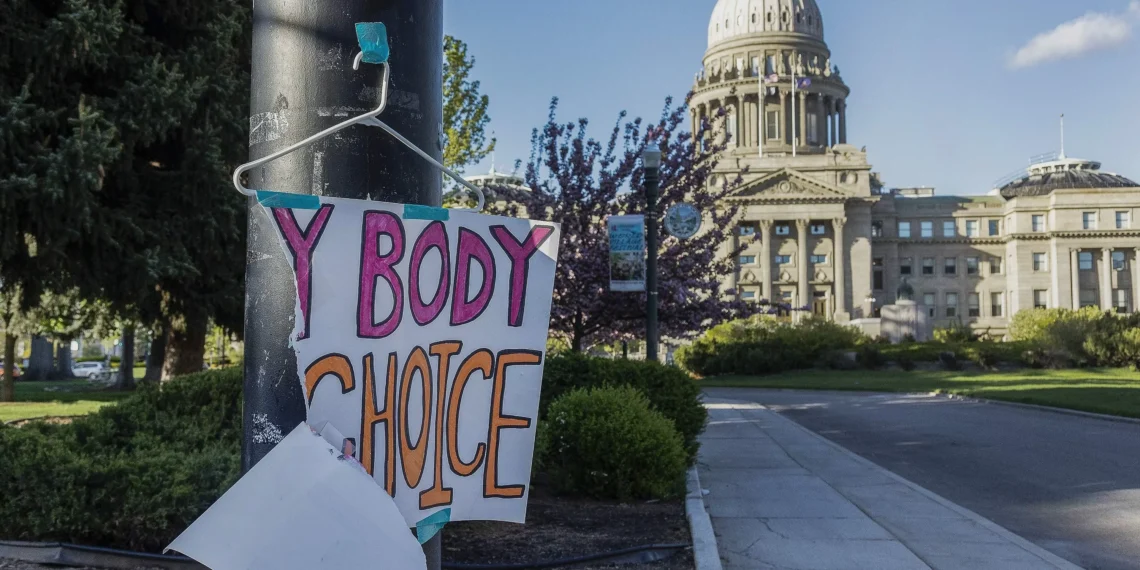The state of Idaho is currently embroiled in a heated legal battle over the rights of pregnant individuals. At the heart of this fight is a law known as EMTALA, which prohibits discrimination in emergency medical care. The state is arguing that this law interferes with their controversial abortion ban, effectively devaluing the lives of pregnant people and treating them as second-class citizens. This shocking stance has led Idaho to take their case all the way to the Supreme Court, in a move that could have far-reaching consequences for the rights and dignity of pregnant individuals across the country.
EMTALA, or the Emergency Medical Treatment and Active Labor Act, was enacted in 1986 with the goal of ensuring that all individuals, regardless of their ability to pay, receive appropriate emergency medical care. This law has been a crucial safeguard for countless people, particularly pregnant individuals who may face unique challenges in receiving timely and necessary care. However, the state of Idaho is now claiming that this law is standing in the way of their strict abortion ban, which was passed in 2018 and prohibits abortions after 20 weeks of pregnancy.
The state’s argument is not only deeply concerning, but also fundamentally flawed. By suggesting that EMTALA somehow interferes with their abortion ban, Idaho is essentially admitting that their ban is discriminatory and puts the lives and health of pregnant individuals at risk. This is a shocking admission and one that should not be taken lightly. It is clear that the state is prioritizing their own narrow agenda over the wellbeing and rights of their citizens.
At the heart of this issue is the question of whether pregnant individuals should be treated as second-class citizens, with their rights and needs subordinated to those of the state. This dangerous and oppressive mentality is not only unacceptable, but it goes against the very principles of equality and justice that our country was built upon. Pregnant individuals should not be reduced to mere vessels for the state’s agenda, but rather should be recognized as autonomous and equal beings with their own agency and rights.
Moreover, Idaho’s relentless pursuit to strip pregnant individuals of their rights does not exist in a vacuum. This case is part of a larger, nationwide attack on reproductive rights and bodily autonomy. Anti-choice lawmakers and activists have long sought to control the bodies and choices of pregnant individuals, and this Supreme Court case could be a major step in their efforts to do so. We cannot allow this regression of rights to continue any further.
It is important to note that this is not just an issue of abortion. By targeting and attempting to undermine EMTALA, Idaho is also putting the health and lives of pregnant individuals at risk in emergency situations. This could have devastating consequences, not only for the individuals directly affected, but also for their families and communities. No one should have to fear for their health and safety simply because they are pregnant.
The fact that this case has made it all the way to the Supreme Court is deeply concerning, but it also presents an opportunity for the highest court in the land to stand on the right side of history. The outcome of this case will have a significant impact on the rights and dignity of pregnant individuals, and it is imperative that the court recognizes the gravity of the situation and rules in favor of justice and equality.
In conclusion, the state of Idaho’s argument that EMTALA interferes with their abortion ban is not only misguided, but also dangerous and discriminatory. It is a sad reflection of the current state of reproductive rights in our country, but it also presents an opportunity for us to stand up and demand change. We must continue to fight for the rights and dignity of pregnant individuals, and we must hold our leaders accountable for their actions. No one should be treated as a second-class citizen, and it is our duty to ensure that this never happens again.







